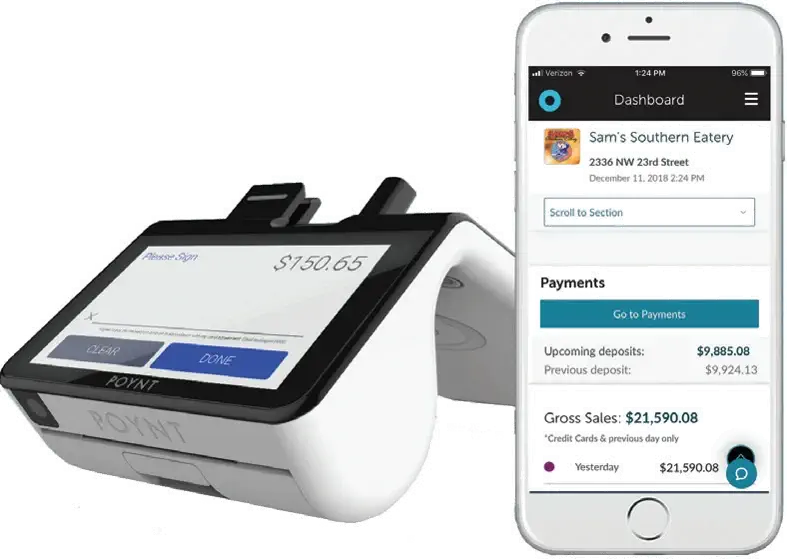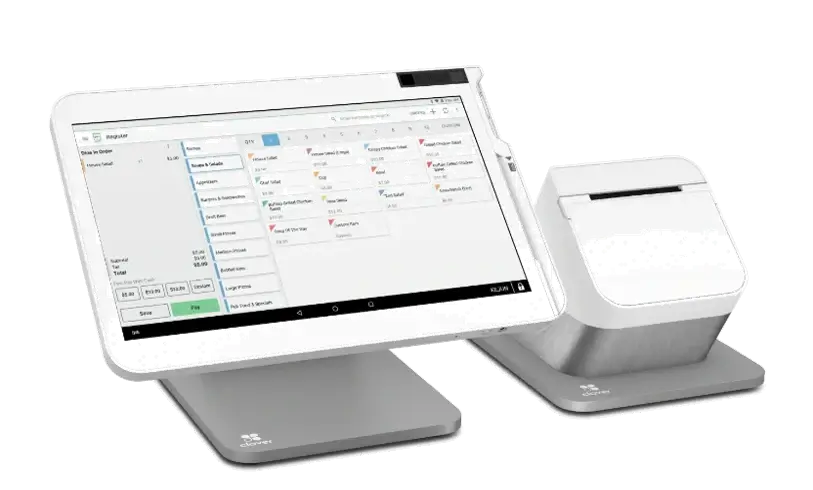Retail Merchant Account Fees Made Simple: What You're Actually Paying For

Many of you may have owned a retail business or are considering starting one; chances are, you're familiar with retail merchant account fees. But what are they, and more importantly, what are you actually paying for? Whether you're searching for the best retail merchant account USA or considering cheap retail merchant account solutions, knowing the nitty-gritty of retail merchant account fees can save you time and money in the future. This guide will break down all that you need to know, from the way these fees are computed to how you can compare various merchant account plans for retailers.
What Are Retail Merchant Account Fees And Why Do They Matter?
What Is A Retail Merchant Account?
What is A Retail Merchant Account? A Profound Guide. A retail merchant account is a specialized facility that enables your business to accept credit card payments, including retail credit card processing. It's an essential aspect of retail payment processing services in the USA, allowing consumers to pay through credit or debit cards, both online and offline.
Why Do Retail Merchant Account Fees Matter?
Because they directly affect your bottom line. Retail merchant account fees are the fees you pay for retail payment processing services — and knowing what you're actually paying for prevents you from overspending on the top advantages of retail merchant accounts. Understanding the fee structure enables you to select a retail merchant provider offering low-cost services, thereby increasing your business's profitability.
How Are Retail Merchant Account Fees Calculated?
How Are Fees On A Retail Merchant Account Set Up?
Retailer merchant account pricing typically includes both fixed and variable amounts. The key elements are:
- Transaction fees: A percentage of every sale, sometimes referred to as interchange fees or per-transaction fees.
- Monthly fees: An installment for keeping the retailer's merchant account setup. Set up or application fees: One-time expenses for opening the account.
- Chargeback fees: When a customer disputes a payment, a fee typically applies.
- PCI compliance fees: To maintain security standards, some payment providers charge an additional cost, such as at Thrifty Payments.
What Is The Average Fee Structure?
You may find interchange-plus pricing, which transmits real card processing fees along with a markup, or flat-rate pricing, which boils fees down into a single percentage with a fixed fee per transaction.
What Are The Typical Types Of Retail Merchant Account Fees?
Why Are Various Providers Charging Different Fees?
Retail merchant account providers in the area typically offer varying pricing for merchant accounts to retailers. The following are the most typical types of retail merchant account fees:
- Interchange-plus fees: Typically, the lowest priced, transferring the real card processing fees with a markup added.
- Flat-rate fees: Easy, fixed percentage, best for small businesses.
Monthly minimums: A minimum that you have to pay, no matter how much volume is done.
- Batch fees: Fees when batching several transactions together.
- Early Termination Fees: Fees incurred if the account is closed prematurely.
How Do These Fees Affect Your Retail Credit Card Processing Fees?
They also determine the cost per dollar processed, which affects your profit margins. Partnering with the right retail merchant provider that offers transparent and competitive merchant account pricing can make a significant difference for retailers.
Why Do Various Retail Merchant Account Providers Charge Varying Fees?
What Affects Retail Merchant Account Fees?
Several factors contribute, such as:
- Business size and transaction volume: High-volume or large businesses might be eligible for lower rates.
- Type of retail: Brick-and-mortar, online, or omnichannel retailing.
- Provider's fee structure: While some providers aim for low-priced merchant services for retail, others focus on high-end features.
- Security and compliance requirements: Some providers include an additional charge for PCI compliance or fraud prevention.
Where Can I Find The Most Transparent And Affordable Merchant Account Fees In The USA?
Search for retail merchant account providers near you that offer transparent, upfront rates, and compare their retail payment processing services across the USA. The top 7 retail merchant account providers typically offer clear fee structures and excellent customer reviews.
How Can I Lower Retail Merchant Account Fees Without Compromising Service?
What Are Some Negotiation Tips For Lower Merchant Account Fees?
Here's how you can save money:
- Shop around: Don't accept the first quote; instead, compare merchant account rates for retailers.
- Negotiate: Providers will often waive fees, particularly if you have high volume.
- Opt for interchange-plus pricing: It's usually the best value.
- Steer clear of unnecessary add-ons: Be cautious of additional fees, such as PCI compliance or equipment fees, unless you require them.
- Leverage your transaction history: Bigger companies can usually negotiate better.
Why is negotiating valuable? Most retail merchant providers offer flexibility to reduce fees or waive certain charges to attract your business.
Understanding Hidden Fees In Merchant Accounts And How To Avoid Them
What Are Hidden Fees In Retail Merchant Accounts?
Hidden fees are fees that aren't openly stated at the beginning, including:
- Monthly minimums that activate additional fees if the volume of transactions falls
- Data fees or statement fees
- Chargeback fees above the usual rate
- Leasing or equipment fees
How To Steer Clear Of Hidden Charges?
- Carefully read merchant account credit card agreements.
- Directly ask retail merchant providers for all potential fees.
- Choose transparent merchant account pricing for retailers.
- Compare using tools and reviews of other retail merchant clients.
Why Is Avoiding Hidden Fees Important?
Hidden fees can substantially increase your expenses and cut into your profit margins, costs that could have been averted with diligence.
Case Study: How Small Businesses Save Money On Merchant Account Fees
Introducing Sarah's Boutique:
Sarah runs a small retail boutique in Texas. Previously, she was paying hefty fees with an obscure provider for retail merchant account services. After looking for retail merchant account providers nearby, she changed to a provider with low-cost retail merchant account plans and retailer merchant account pricing on an interchange-plus basis.
Results?
Sarah reduced her retail card processing fees by 25%, which saved her thousands of dollars every year. She also avoided surprise fees by thoroughly studying her contract, and her new company offered excellent retail merchant services.
Frequently Asked Questions
Q: What does a retail merchant account usually cost?
A: The fees range quite a bit, but most of the best retail merchant account USA providers have about 2.5% to 3.5% for each transaction, in addition to a minor fixed fee. How much does a retail merchant account cost? That depends on your business size, number of transactions, and provider.
Q: How much in fees is a good retail merchant account?
A: What is an optimum fee for retail merchant accounts? Typically, lower is better, with the best rate being below 2.9% plus $0.30 for small business transactions, and transparent merchant account fees for retailers.
Q: Can I negotiate my retail merchant account fees?
A: Yes, definitely! Most retail merchant providers will negotiate with you, particularly if you have a high volume of transactions or good credit.
Q: How do I find the seven best retail merchant account providers?
A: Look for retail merchant account providers near me or read reviews from the industry to get providers with the best reputation and transparent pricing.
Q: What are the top advantages of a retail merchant account?
A: Advantages include more sales through retail credit card payment processing, enhanced customer experience, and efficient retail payment processing services.
Conclusion: Informed Decisions Regarding Retail Merchant Account Fees
Retail merchant account fees aren't just about comparing numbers — it's about understanding what you're actually paying for. From retailers' merchant account prices to sundry fees, being informed helps you make the correct retail merchant account choice for your business in the USA.
Whether you’re a small retailer or a growing enterprise, affordable retail merchant account solutions and retail payment processing services in the USA are within reach. Remember to compare retail merchant providers, negotiate where possible, and always read the fine print. Doing so ensures your retail merchant experience is cost-effective, transparent, and aligned with your business goals.
If you’re searching for retail merchant account providers near me, start by focusing on transparency, reputation, and support. With the right partner, you’ll turn retail credit card processing into a seamless, profit-boosting part of your retail success story.



























